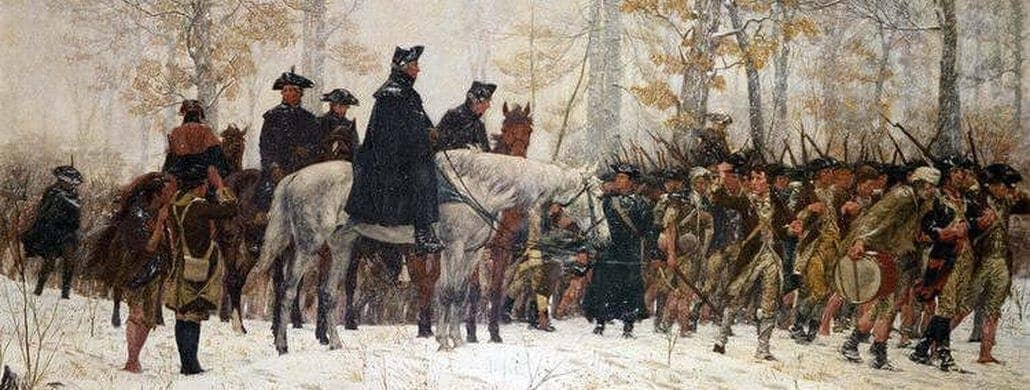
[America, 1776] After winning the French and Indian War, Great Britain was the dominant colonial power. Yet, the war had doubled the British Empires’s national debt, and the Crown sought sources of revenue to pay it off.
“No taxation without representation”
So the Crown imposed new taxes on the American colonies. Many Americans objected to the mother country’s imposing its will on the colonies, it sparked outrage. According to English law, there could be “no taxation without representation”. That led to boycotts and acts of resistance such as the Boston Tea Party. Great Britain then passed a series of penal laws, the “Intolerable Acts” or “Coercive Acts”.
Outrage among the colonists
Andy, who had come to North America as a youth, was now a grandfather. Ambrose and his wife Rachel had a son, Emmett, and a daughter, Laurie. Betty and her husband Simon had a son, Randolph. He and Cathy had been granted a long, happy life together before she died in peace.
One evening Ambrose came back from a visit to his sister in Philadelphia. “Over there people are outraged too,” he said, “now Great Britain wants to punish us. They have passed a series of laws: Boston harbor is closed for trading, meetings in the cities are forbidden, all British officials are freed from the jurisdiction of the courts of Massachusetts. Furthermore, we must provide quarters for British soldiers. That is intolerable!” When English soldiers tried to seize munitions stored by a colonial militia, the American Revolutionary War broke out.
“Proclaim liberty throughout all the land”
On July 4, 1776, Ambrose and his entire family came together in Philadelphia because it was a very special day. Today, the Declaration of Independence of the 13 North American colonies, adopted by the Second Continental Congress, would be read out in public. Betty pointed at the bell tower of the Pennsylvania State House: “Listen, the bell,” she exclaimed, “today they ring it because we and all people can hear the Declaration of Independence”. “I have something for you,” her husband Simon whispered in his Betty’s ear, and pulled a small booklet out of his pocket. “New Homeland Pennsylvania,” Betty read, and then cheered with joy. There were all her articles, printed and bound!
The American Revolutionary War (1775-1781, America)
But would England let its colonies go? Also among the Americans, there were loyalists and people undecided,. Only a third wanted to go to war with General Washington. Andy too was very thoughtful. He felt that the end of his long life was not far off, and he wanted a peaceful evening of life.
As a youth, he had fled and never wanted to see death, war invalids and burned villages and fields again. But at stake here were his children, his grandchildren and the generations to come after them. They had come to North America to live in freedom, how could they bow to a distant government that did not grant them any political participation? “Life, liberty and the pursuit of happiness … all men are created equal,” he repeated in thought the words of the Declaration of Independence. Andy knew all too well what it was like to be at the mercy of a monarch. Ambrose, his son, Emmett, his grandson, and Simon, his son-in-law, would fight in General Washington’s army. Resolutely, he set out to Sean, to work out a plan to supply the Continental Army.
Soon, the war came to the Brandywine Creek. At the end of July 1777, British troops marched towards Philadelphia. General Washington and his soldiers wanted to stop them at the Brandywine Creek, but were defeated on September 11, 1777, and had to withdraw. On September 26, 1777, the British marched into Philadelphia.
Many Americans were upset that the British government had hired a whole army abroad and now send it against them. Since most foreign troops came from Hesse, soon all foreign soldiers were called “Hessians.” When a Hessian was caught, people let him feel this outrage, although in general no harm was done to them.
England hires an army
George Washington himself had pointed out that many Hessian were non-volunteers. He had German prisoners quartered in places inhabited by German immigrants. When they saw how their compatriots in America lived as free people on their own land, free to shape their lives themselves. Thus, Washington hoped, they would not fight against the Americans anymore and perhaps even stay in the New World. At the same time, he was strictly against integrating deserted Hessians into his army. Yet, for most Hessians subjects, desertion was no option anyway. Should they desert, a relative would have to serve in their place. So many soldiers held out in captivity until the end of the war and worked for Americans.
The “Mercenaries from Hesse”
Two captive soldiers had been sent to Andy’s town. Fritz was a Hessian, and being separated from his family caused him a great deal of pain. As to Johann, who helped in the “Merry Dragon” inn, Andy was not sure. “By the way you speak I think you are not from Hesse, right?” he finally asked, “to be honest, it brings back memories.” At these words Johann looked up. “No,” he said, as he saw the sincere friendliness of the elderly gentleman. “I come from the Rhine, from the Duchy of Berg. I have been friends with Fritz for a long time, and when I visited him for his wedding in Kassel, it happened. We celebrated until late, and during the night my papers were stolen, and I was brought to the barracks.”
Andy nodded sympathetically. “What will you do when all this is over?” he asked. “I don’t know,” Johann answered. “As you see, a bullet injured my right arm, so I cannot serve in the Hessian army anymore. I don’t want it either, but in that case, they will hardly take me home with them. To stay here would mean emigration, and our sovereign, Prince-Elector Charles Theodore of Pfalz-Sulzbach, has put a ban on emigration. So I would probably be punished at home.” Andy nodded affectedly. “Yes, I know, that would probably happen to you,” he said, “you know, I come from the same region. My foster father and I were forced to flee back then, and we owe our escape to a very respectable bailiff of the Duchy of Berg. Had he not helped us, we would have ended up in prison.”
Memories of great-uncle Matthias
Immediately Johann fell silent. After a while he said, “then you are the son of that master-builder whom great-uncle Matthias Bergmann helped escape back then?” Now Andy fell silent too. “What has become of him?” he finally asked, “father and I have always prayed that he did not suffer damage.” “Great-uncle Matthias had many grudgers,” Johann answered, “and, needless to say, they went right away to the Duke of Berg, the Prince-Elector Johann Wilhelm and discredited him. He could not remain a bailiff. However. most people highly estimated him, and also Johann Wilhelm was well aware of his ability, he granted him a pension.
Since then, the men of our family have been assigned to work in all regions of the Electorate. Wherever our Prince-Elector needed our services: Düsseldorf, the capital of the Duchy of Berg, the residence in Mannheim and the castle in Schwetzingen. So we Bergmanns are a big, widespread clan. Also in the Siebengebirge I still have family.”
Johann
When he saw Andy’s concerned face, he added: “Don’t you worry, great-uncle Matthias never regretted that he helped you back then. For our family and for many people at home he was a hero, and we children all wanted to become like him.” “I’m glad that I have met you,” Andy finally said, “although I wish the circumstances were better. We are deeply in debt to your family, and now you can count on us.”
A little later, Andy became very weak and could not leave his bed. While his family cared for him in the most loving way, they knew that they would soon have to bid farewell. Johann too hardly left Andy’s side. “Don’t be so sad,” Andy said, “I have had a long, fulfilling life. That is much more than I could ever hope for back then as an orphan boy in the Old World. It was wonderful to build up a new life for us here and to see you all grow up.” A little later he died.
Yorktown 1781
For a long time, the Americans were no match for British and Hessian troops. Eventually, thanks to the military support of France and the training by the Prussian General Friedrich Wilhelm von Steuben, they won the decisive Battle of Yorktown in 1781, and the English commander Cornwallis surrendered. In the Peace of Paris 1783, the United States of America were recognized as an independent state.
References
The picture is from the German Wikipedia, public domain section.

Be the first to comment